Karen Jacobsen teamed up with colleagues, Justin B. Hollander (professor of urban and environmental policy and planning at Tufts) and Christopher Schwalm and Alexandra Naegele (scientists at the Woodwell Climate…
Karen Jacobsen
Leir Chair in Global Migration and Research Director
Leir Chair in Global Migration, The Fletcher School at Tufts University
Research Director, Feinstein International Center
Contact
Working with Feinstein since 2000
Based in Medford, MA

Karen Jacobsen directs Feinstein’s Refugees and Forced Migration Research Program. At Fletcher and Friedman, she teaches courses on forced migration and field research methods, and advises Ph.D. and master’s degree students.
Karen is a recognized expert in the field of forced migration, and she consults and writes widely on this topic. From 2013–2014 she headed the Joint IDP Profiling Service (JIPS) in Geneva, on leave of absence from Tufts. From 2000–2005, she directed the Alchemy Project, which explored the use of microfinance as a way to support people in refugee camps and other displacement settings.
Karen received her B.A. from the University of Witwatersrand in Johannesburg, her M.A. from Northeastern University, and her PhD in Political Science from MIT.
A South African by birth, Karen travels there frequently. She lives in Brookline with her son and dogs.
RESEARCH INTERESTS
- Urban displacement
- Refugee and IDP rights and livelihoods
- Migration and refugee policy
REGIONAL FOCUS
- Sub-Saharan Africa
- Middle East
COURSES TAUGHT
- Current Issues in Global Immigration Policy (DHP 238), Fall Term
- Forced Migration (DHP D239), Spring Term
- Introduction to Research Methods (DHP D235), Spring Term
MOST CITED BOOKS & ARTICLES
- Jacobsen, Karen. “The Economic Life of Refugees.” Kumarian Press, 19, no. 2 (2005): 258-260. doi:https://doi.org/10.1093/jrs/fel003
- Dyan Mazurana, Karen Jacobsen and Lacey Gale. “A View from Below: Conducting Research in Conflict Zones.” (Cambridge: Cambridge University Press, 2013), 254-274.
- Jacobsen, Karen. “Livelihoods and Forced Migration.” In The Handbook of Refugee and Forced Migration Studies, ed. Elena Fiddian-Qasmiyeh, Gil Loescher, Katy Long, and Nando Sigona (Oxford: Oxford University Press, 2014), 100-111.
- Jacobsen, Karen and Loren B. Landau. “The Dual Imperative in Refugee Research: Some Methodological and Ethical Considerations in Social Science Research on Forced Migration.” Disasters, 27, no. 3 (2003): 185-206. doi: 10.1111/1467-7717.00228.
- Jacobsen, Karen. “Can refugees benefit the state? Refugee resources and African state building.” Journal of Modern African Studies 40, no. 4 (2002). 577-596.
MOST RECENT EXTERNAL PUBLICATIONS
RECENT NEWS
The Foreign Policy Association’s Great Decisions is America’s largest discussion program on world affairs. The program model involves reading the Great Decisions Briefing Book, watching the DVD and meeting in…
War in the Ukraine broke out in February 2022. Feinstein International Center faculty and researchers have been sharing what they know about the crisis and wider implications through a variety…
War in the Ukraine broke out in February 2022. Feinstein International Center faculty and researchers have been sharing what they know about the crisis and wider implications through a variety…
Karen Jacobsen and Marina Lazetic presented their recent work on the impact of climate change (mainly rapid onset events) on displacement and migration within the U.S. at the Migration, Displacement…
When ‘hunker down’ isn’t an option: The 2021 Atlantic hurricane season showed how low-income communities face the highest risks People wade through high water to evacuate a flooded home in…
Together with Visiting Fellow Adam Saltsman, Karen Jacobsen co-edited a special section in the Journal of Refugee Studies Volume 34, Issue 3, September 2021. The section focused on power in…
Karen Jacobsen was quoted in an article from Marketplace titled, “Climate Change may force 200 million people to migrate, study says.” This article reports on the estimated number of people worldwide who…
Karen Jacobsen was quoted in a New York Times article titled, “Online Appeal Quickly Raises Millions for Afghan Rescue Flights,” which discusses the skepticism around raising online funds to rescue…
Karen Jacobsen and Kim Wilson spoke at a Symposium held by The Journeys Project and Catholic University Eichstaett-Ingolstadt called Finance in Displacement: Refugee Integration in Jordan, Kenya, Mexico, and Uganda….
Karen Jacobsen participated in a virtual speaking series at Columbia University’s Graduate School of Architecture, Planning, and Preservation where she presented on the impact of displacement on cities in the global…
Refugees tell stories of problems – and unity – in facing the coronavirus A group of refugees living on the pavement near the Cape Town Central Police Station on the…
On April 9, 2020 the Fletcher School highlighted Karen Jacobsen’s Forced Migration course in which she and her students examined different approaches to handling refugee and migrant worker populations during…
Charles Simpson and Karen Jacobsen helped edit issue 63 in the Forced Migration Review. Forced Migration Review issue 63 with a major feature on ‘Cities and towns’ is now online: www.fmreview.org/cities. …
Karen Jacobsen and Danielle Douglas published an op-ed titled “US Migration ‘Protection’ Protocols Lead to Violence Instead” in The Globe Post. This op-ed examines the US Central Immigration Policies and how they…
On December 26, 2019, a WGBH article by Annie Shreffler and Lauren Jo Alicandro highlighted Karen Jacobsen’s panel discussion at the Boston Public Library in April as one of six…
In 2019 Karen Jacobsen and Charles Simpson co-edited a Special Issue on refugee urban integration with MDPI featuring an article from one of the Refugees In Towns researches from Belgrade,…
In a recent Tufts Now article written by Heather Stephenson, Karen Jacobsen explains why Turkey is seeking to push out Syrian refugees. The article, titled, “Why is Turkey Pushing Refugees to…
In September 2019, Karen Jacobsen attended a Wilton Park conference on “Internally Displaced Persons: towards more effective international protection and durable solutions (WP1705). Through off-the-record discussion under the Wilton Park…
On August 29, 2019, Karen Jacobsen published an Op-ed in the Globe Post. The article explains why the Mexican job creation program in Honduras will not stem the flow of…
On August 27, 2019, the Jordan Times covered our report “Citizens of Somewhere” about refugees in Amman, Jordan. Allyson Hawkins, Ruby Assad, and Denis Sullivan wrote the report as part…
In an effort to highlight some of the interesting and meaningful work being led by faculty members, The Fletcher School of Law and Diplomacy has begun profiling research projects that…
Karen Jacobsen discussed on a panel in the Boston Public Library on April 4th, 2019. Topics included how different countries, including the U.S., have reacted to migration, who determines whether someone…
On Wednesday, March 27th, Karen Jacobsen lectured at the American University in Cairo. The School of Global Affairs and Public Policy hosted the lecture. She discussed the US refugee and immigration policy…
Karen Jacobsen‘s article “Refugees and Global Migration” has been published as one of eight topics in the Great Decisions 2019 edition. Today, no countries have open borders. Every state in today’s…
Migrants travel in groups for a simple reason: safety Karen Jacobsen, Henry J. Leir Chair in Global Migration, Fletcher School of Law & Diplomacy, Tufts University AP Photo/Rodrigo Abd Central…
© Getty Images On July 12, 2018 The Hill published an article called “Creating American refugee camps is a terrible idea” by Karen Jacobsen. In the article Karen critiques the…
Monitoring and Evaluation Technical Assistance (META) hosted Karen Jacobsen and Charles Simpson on their podcast on April 24, 2018. They discuss how the Refugees in Towns project helps us to…
The World Bank launched “Cities of Refuge” a report at the World Urban Forum in Kuala Lumpur on February 10, 2018. The report was met with praise at the conference….
On September 18, 2017 Feinstein faculty and an alum were honored at the naming event of the Henry J. Leir Institute for Human Security. Fletcher Masters of Arts in Law…
Karen Jacobsen gave a keynote address at the Joint IDP Profiling Service (JIPS) Conference: Making Data Useful in June 2017. In her address, she notes that “if the data we…
In May, Feinstein faculty and researchers conducted several workshops for students (particularly those with upcoming summer research internships) to help them prepare for practicalities in the field: Kim Wilson and…
Karen Jacobsen spoke at a workshop, Migrant Journeys Interrupted: Challenges of “Permanent Transience,” in Tijuana, Mexico, on May 20, 2017. The Tijuana workshop focused on cities in Mexico that are…
As part of Karen Jacobsen’s Refugees in Towns project, three Fletcher students worked with Augusta, Maine Mayor David Rollins to bring together 50 people of different backgrounds to consider what…
On April 6, 2017 Sasha Chanoff (MAHA alum ’04) talked about refugee resettlement and his experience at the Fletcher School during an intimate book talk at Tufts. His recent book,…
Karen Jacobsen and Dan Maxwell recently shared their expertise on cash transfers and food aid with Tufts Now. The article begins: As the ongoing refugee and migrant crisis continues to…
On February 16, 2017, Karen Jacobsen joined a panel of Tufts faculty with expertise in areas related to President Trump’s executive order on immigration. The panel, “The Changing Political Climate:…
On February 12, 2017 Karen Jacobsen appeared on C-SPAN’s Washington Journal to discuss the screening process for refugees entering the U.S. Watch the video below.
On January 30, 2017 Karen Jacobsen described what refugees go through to resettle in the U.S. in an op-ed in the Washington Examiner. She writes: How difficult is it to…
Feinstein faculty are teaching a variety of courses on humanitarian issues during the upcoming Spring 2017 Semester. We encourage students to check them out: Karen Jacobsen: Forced Migration (DHP D239)…
On December 9, 2016 Karen Jacobsen and Dyan Mazurana published an opinion piece in Tufts Now. They write: War, persecution and natural disasters are wreaking havoc on communities across the…
In the past weeks, Tufts hosted two faculty panels to discuss what foreign policy may look like in the new U.S. administration. Faculty offered a wide range of expertise on subjects…
Leading academics and influencers from across the world released an open letter through the Huffington Post asking world leaders to do more to ensure refugees an education. Among the 20 signatories is…
On September 2, the independent digital media project Refugees Deeply posted an article titled “Six Vital Voices on the Economics of Migration” as part of their “Experts to Watch” series. Included…
On August 31, JIPS hosted a launch event to share two new projects. Presented first was the second version of the Dynamic Analysis and Reporting Tool (DART). DART is an online easy-to-use system built…
The Friedman School of Nutrition Science and Policy’s Dean Mozaffarian announced the appointment of Daniel Maxwell, Professor of Nutrition, as the acting director of the Feinstein International Center. Over his…
Karen Jacobsen worked with a range of government representatives, civil society stakeholders, and development and humanitarian partners at the Center for Mediterranean Integration‘s Peer-To-Peer Learning Workshop for Communities Hosting Refugees…
Karen Jacobsen and Paula Armstrong discuss three main lessons from their report, “Cash Transfer Programming for Syrian Refugees” on the Cash Learning Partnership website. The three lessons they review are:…
The humanitarian community uses approaches and tools to support refugees that were designed to be delivered in camp and rural settings. However, today more than half of the world’s refugees…
Feinstein’s Acting Director Karen Jacobsen held a guest lecture for students and the public at MIT on Tuesday, March 15. Her presentation was titled “Understanding the Impact of War and…
FEINSTEIN PUBLICATIONS
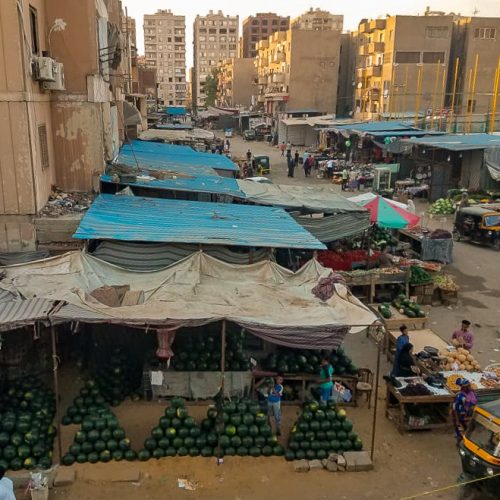
This report analyzes gang violence affecting African refugee communities in Cairo, Egypt to promote understanding of why violence occurs and local grassroots efforts to prevent violence. It makes recommendations for how humanitarian organizations can support community efforts.
In this Forced Migration Review article, Refugees in Towns (RIT) project director Karen Jacobsen presents the project, why it is of importance in our current political climate, and what the…
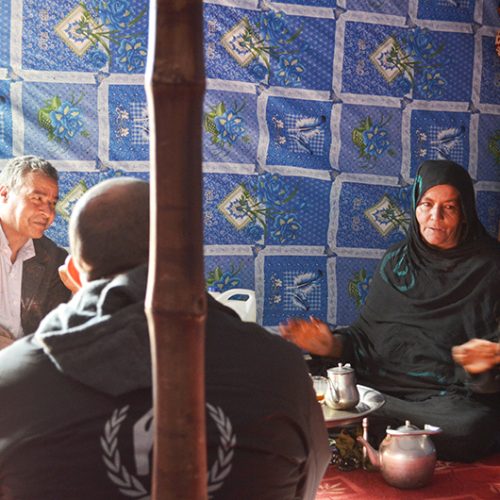
Between 2004 and 2014, UNHCR’s Confidence Building Measures (CBM) program helped more than 20,000 refugees in the Tindouf desert camps of Algeria to visit their families. This report gives a human perspective of the experiences of Sahrawi refugees and their families.
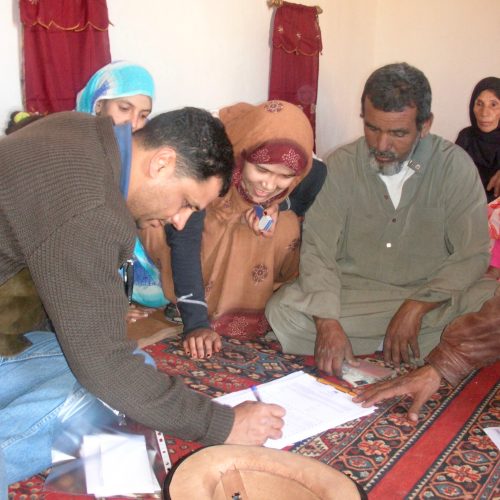
This report describes a relatively unknown humanitarian program that has addressed one of the saddest aspects of displacement – the separation of families. Between 2004 and 2014, UNHCR’s Confidence Building…
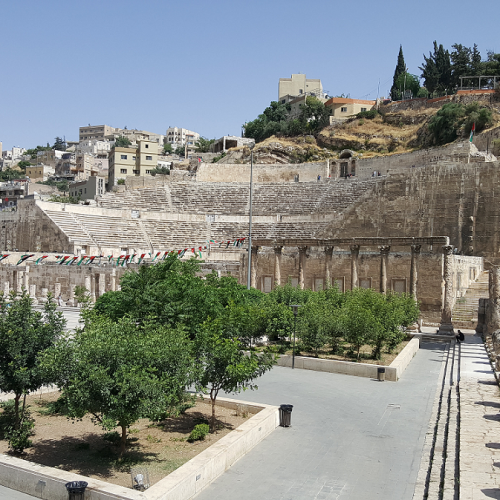
This policy note focuses on urban forced displacement from the perspective of receiving towns and cities.
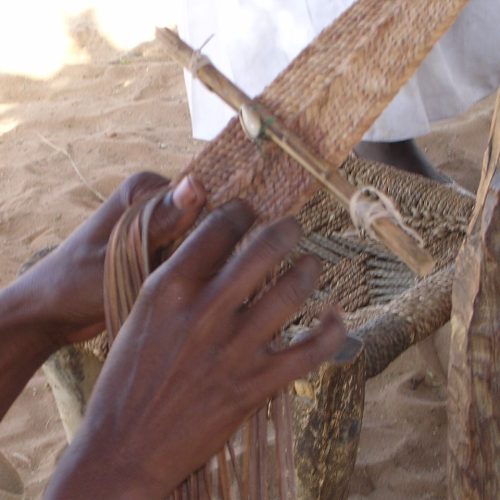
This report outlines the types of livelihood efforts that aid agencies have undertaken in countries of first asylum and explores the challenges they face in realizing the full promise of these approaches. The authors offer recommendations to improve effectiveness.
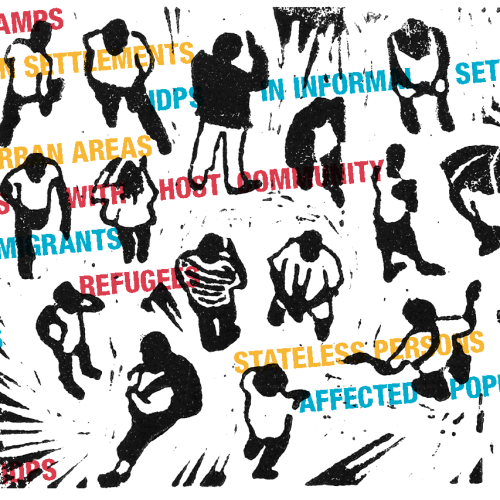
This book is a joint effort from JIPS and the Feinstein International Center that calls for an update to the existing international guidance for profiling.

This report provides lessons for the Danish Refugee Council (DRC), other humanitarian organizations, and funders striving to optimize cash transfer programs (CTP) in humanitarian contexts. Through an examination of the…
Over the past two years, the Feinstein International Center has supported the Joint IDP Profiling Service (JIPS) to develop a Guidance for Profiling Urban Displacement Situations. The Guidance highlights the…
According to the Hyogo Framework for Action, disasters affect over 200 million people annually, causing significant loss of lives, forced migration, and disruption of livelihoods and institutions. The trend over…
Each month thousands of men, women, and children flee Eritrea as a result of grave violations of human rights committed by the Eritrean government. Traveling via Sudan and Egypt, 36,000…
Refugees in urban areas face a specific set of livelihoods problems, and in recent years many aid agencies have begun to try to address these problems by supporting refugees through…
Refugees in urban areas face a specific set of livelihoods problems, and in recent years many aid agencies have begun to try to address these problems by supporting refugees through…
Refugees in urban areas face a specific set of livelihoods problems, and in recent years many aid agencies have begun to try to address these problems by supporting refugees through…
Refugees in urban areas face a specific set of livelihoods problems, and in recent years many aid agencies have begun to try to address these problems by supporting refugees through…
This is one of three case studies that were conducted to test the methodology for profiling displaced persons in urban areas. The full report on the methodology is available here….
This is one of three case studies that were conducted to test the methodology for profiling displaced persons in urban areas. The full report on the methodology is available here….
This is one of three case studies that were conducted to test the methodology for profiling displaced persons in urban areas. The full report on the methodology is available here….
In 2010-11 we partnered with the U.S. State Department’s Bureau of Population, Refugees and Migration to develop a profiling methodology for urban migrants and refugees. The purpose of the methodology…
In the disaster context emphasis has been generally placed on the initial humanitarian and emergency response. However, recently there has been an increasing recognition of the importance and value of…
This report details the migration experience and livelihood choices of Sudanese and Eritrean asylum seekers and migrants in Tel Aviv. The research is based on a scoping study conducted by…
Increasing the Financial Resilience of Disaster-affected Populations is a desk review paper commissioned and supported by the Office of Foreign Disaster Assistance, USAID. One of the most significant problems facing…
This briefing paper discusses findings from a study conducted in Darfur from 2006-8 that explored the changing role of migration and remittances in the livelihoods of conflict-affected people. We conducted…
For more than 40 years, Colombians have been subject to chronic violence perpetrated by left-wing guerillas, paramilitaries, government forces, and drug cartels. In the past 20 years, an estimated four…
After a series of political crises, Côte d’Ivoire’s armed conflict erupted in 2002, leading to the division of the country into government and rebel-controlled areas. Both sides committed grave human…
Sudan’s North-South civil war and the conflict in Darfur generated one of the largest internally displaced populations in the world. A large proportion of these IDPs is found in and…
Competing livelihoods in the absence of good local governance has led to localized and ultimately devastating conflict over natural resources in Darfur. The lack of comprehensive livelihoods analysis in international…
The World Food Programme has been providing humanitarian food assistance to vulnerable communities and groups in Southern Sudan for over twenty years, but circumstances have changed following the signing of…
It is almost two years since the beginning of the rebel insurgency in Darfur, but the conflict continues, the ceasefire has been frequently violated, and the world’s worst humanitarian crisis…
The Alchemy Project began in 2001 as a pilot program to explore whether income generating interventions do support the livelihoods of forcibly displaced people. Our long-term goals were to work…
FEINSTEIN RESEARCH PROJECTS
This project collects and commissions case studies of urban settings (towns, cities or sub-areas of cities) in which refugees or internally displaced people have been living for more than two years.
The project has three components, each designed to give a different perspective on Sahrawi refugees.
Our research on and methodology for profiling will help aid agencies better understand the livelihood issues confronting displaced people and non-displaced locals in urban settings.
For refugees in urban areas, there is little evidence about which humanitarian programs work, what livelihoods initiatives refugees undertake themselves, and where opportunities for programming interventions lie. Our research seeks to address this knowledge gap.
The Financial Resilience program seeks to promote understanding of financial resilience – the ability of a household or community to prevent, sustain, or recover from financial shocks – in marginalized populations in high-risk/high-stress environments.
Tufts/FIC commissioned a microfinance assessment undertaken as part of the joint UNDP-IOM-Tufts project earlier this year. That document, “Championing the Coping Economy: An Assessment of the Microfinance Market in Darfur: Gaps and Opportunities,” reviews the financial sector of Sudan and Darfur, and assesses the potential for microfinance as a tool for economic recovery in Darfur.
